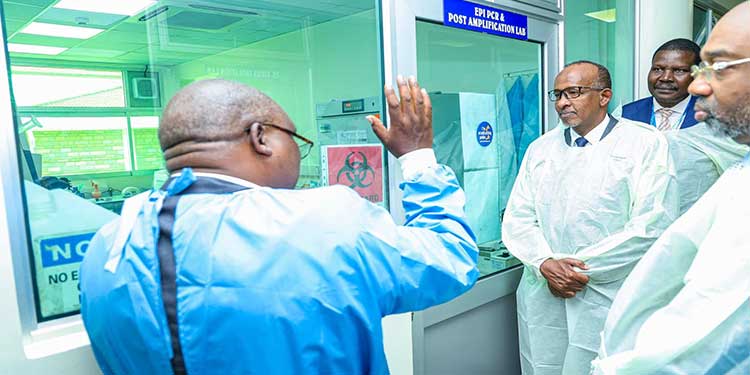
Kenya’s efforts to quickly detect and respond to poliovirus and other epidemic-prone diseases have advanced significantly with the opening of a newly renovated World Health Organization (WHO)-accredited polio laboratory at the Kenya Medical Research Institute (KEMRI).
Supported by WHO and a Gates Foundation funding, the facility’s handover marks a major investment in Kenya’s and the African region’s health security at a time when nations are working to contain outbreaks of circulating variant poliovirus type 2 (cVDPV2).
The African Regional Polio Laboratory Network, a network of 16 WHO-accredited laboratories throughout the continent, depends heavily on the laboratory, which is housed under KEMRI’s Centre for Virus Research. In order to inform vaccination campaigns and outbreak response, these labs make sure that stool and environmental samples are promptly tested for polioviruses.
Over 5000 stool and environmental samples were processed throughout the African network in 2024 alone, allowing for quick poliovirus diagnosis and assisting in the prevention of transmission in nations like Madagascar and Mozambique.
Modern molecular diagnostic platforms, increased sample storage space, and enhanced biosafety regulations are all features of the new KEMRI facility that guarantee prompt, precise results.
“This lab is essential to shielding kids from the terrible consequences of polio.” In addition to polio, it improves our ability to monitor for measles, rubella, and other infections that can be prevented by vaccination. The WHO Representative in Kenya, Dr. Abdourahmane Diallo, stated, “Kenya is better equipped to detect outbreaks early and respond decisively with this facility.”
The KEMRI facility is essential for Kenya and also helps with cross-border surveillance in the Horn of Africa, one of the regions most susceptible to poliovirus transmission. Coordinated laboratory support and coordinated campaigns are necessary to protect children in border and hard-to-reach areas.
Hon. Aden Duale, Cabinet Secretary, Ministry of Health, attended the handover occasion along with representatives from the WHO, the Gates Foundation, eHealth, and the KEMRI laboratory, emphasizing the collaboration that made it possible.
The Global Polio Eradication Initiative (GPEI), which in 2024 funded the training of more than 800 health workers in GIS mapping, epidemic investigation, and laboratory practices throughout Africa, is a part of the laboratory upgrading. Children in cross-border, peri-urban, and nomadic communities in Kenya are still being monitored and vaccinated; the most recent polio vaccine campaign protected around a million children.
In the last 15 months, Kenya has not reported any cases of circulating variant poliovirus type 2 (cVDPV2). This momentum will be maintained and a resurgence will be prevented with the support of ongoing surveillance and Kenya’s improved laboratory capabilities.
